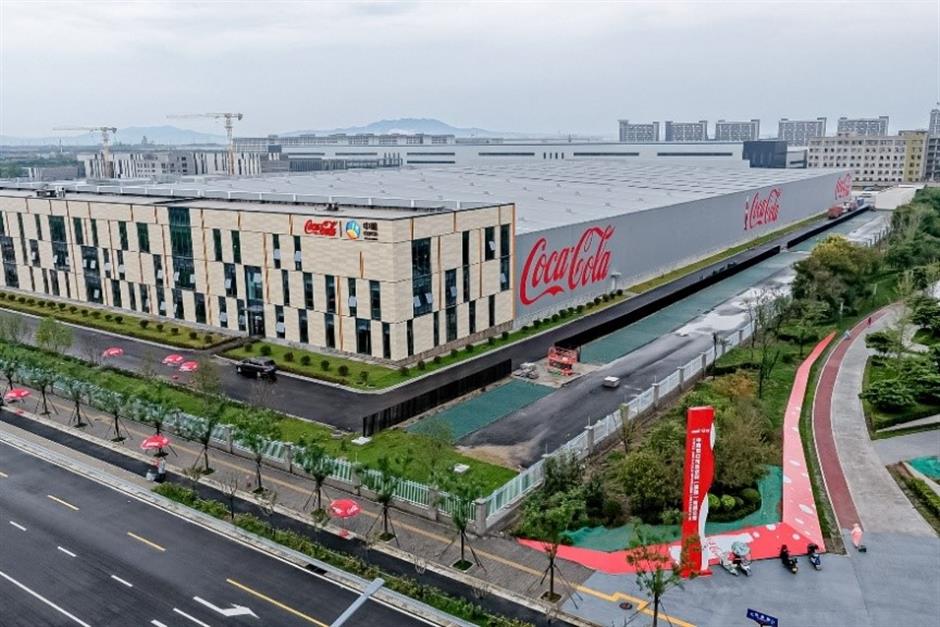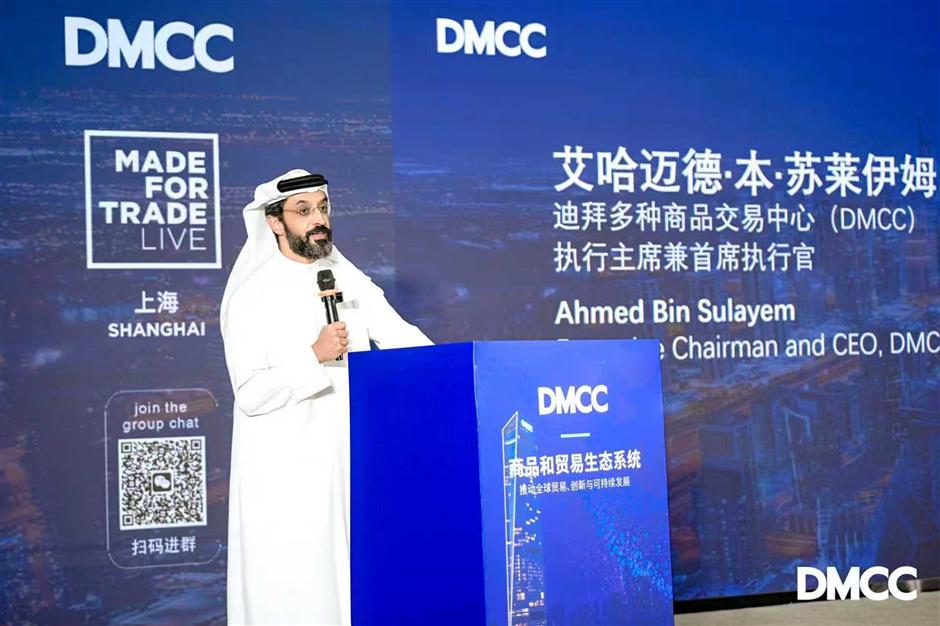China Keeps Powering Ahead, with Investors in Its Slipstream
"Amid global recession, one of the reasons why things don't worsen is that China keeps growing," underlined Ahmed Bin Sulayem, executive chairman and chief executive of a business district in Dubai, whhen he appeared in Shanghai this week to drum up more investment by Chinese companies in the United Arab Emirates.
His comments coincided with the release of third-quarter economic data showing that China is on track to meet its 2025 growth target of 5 percent, and also with an important meeting of China's top leaders that drafted a blueprint for growth in the next five years, known as the 15th Five-Year Plan (2026-30).
Despite global trade tension, China is indeed powering ahead to build on its strengths. Gross domestic product in the June-September period came in at 4.8 percent, far higher than growth rates in major Western economies. And even a 0.5 percent contraction in fixed-asset investment – largely on a struggling property market – didn't dent optimism.
"You can see an apparent transition of China's economy from traditional industries making low-cost products to new sectors guided by advanced technologies," said Shen Kaiyan, director of the Institute of Economics at the Shanghai Academy of Social Sciences.
"China has painted a clear picture for its development," she said. "It focuses more on sustainability and competitiveness, and China is dedicated to carrying it out with consistency. So a figure at any one point or another does not matter that much anymore."

Indeed, a dive into economic data shows surging manufacture of products like 3D printing, up 41 percent in the first three quarters; robotics, up 30 percent; and new-energy vehicles, also up 30 percent. Those gains far outpaced average growth of 6.2 percent across all industries.
Big state-owned enterprises like Shanghai-based automaker SAIC have upgraded to new technologies that address market demand, instead of simply pursuing higher production for the sake of it. The carmaker said sales of green vehicles in the first nine months of the year jumped 45 percent to 1.1 million.
Private firms are leaders in growth. Shanghai-based MiniMax, an AI company established in 2022, launched Hailuo multimodal large-language model consumer platform last year that provides users with AI text and music-generating features.
This year, it unveiled a system that revolutionizes video creation by putting filmmaking tools at users' fingertips. The company's services used by 157 million users in over 90 countries, with the production of 150 million hours of voice messages and 370 million videos so far this year.
"We work really hard to keep a lead in technological development in the sector, with more than two-thirds of our staffers involved in research and development," said Yan Yijun, vice president of MiniMax.
Foreign companies investing in China no longer look at the country as a place to make cheap goods. They see the future and want to invest in it. Coca-Cola Co recently added two new plants in China that feature green policies and smart production technologies.
"China has always been a land of opportunities, which gives us the confidence to continue investing here," said Gilles Leclerc, president of Coca-Cola China. "We are bolstering our regional supply chain network and deepening our local value chain to better respond to market dynamics and build a more resilient future."

Japanese carmaker Nissan, once a popular consumer choice in China, is also retuning itself and seeking to recoup lost market share by emblazoning its technology credentials on the world's biggest auto market.
The company announced earlier this month that it soon roll out its first global plug-in hybrid sedan in China as well as a fuel-powered car equipped with Huawei's HarmonyOS smart cockpit. Next year it plans to introduce its legendary sports car Z Nismo into China.
"We hope to redefine our brand value by creating exciting and trustworthy products," said Chief Executive Ivan Espinosa. "The key to this transformation lies in China. The development speed, technological leadership and user insights of the Chinese market are setting benchmarks for the global automotive industry."
The sheer size of the Chinese market has long been a magnet for investors. Household disposable income continues to rise, with consumers more selective in how they choose to spend it. They are seeking products that are innovative, enhance their feel-good experience and provide value for money. China's retail sales in September rose 3 percent, compared with a 0.5 percent gain in the UK and a 0.6 percent increase in the US in August, the latest data available there amid a government shutdown.
At the same time, Chinese companies armed with advanced technologies and innovative products are looking overseas for expansion.
"A lot of Chinese companies, especially small to medium-sized ones, are eager to develop overseas markets," said Soon Yen Chong, a partner of international advisory firm EY. "They bolster China's outbound investment even in a world beset by geopolitical issues."
According to the Ministry of Commerce, Chinese investors channeled 782.8 billion yuan (US$109.7 billion) overseas in the first eight months of the year to an ever widening diversity of countries.
"The destination of investment has increasingly shifted from traditional ones like the US and Europe to markets such as Indonesia, Malaysia, Vietnam and those in the Middle East," Chong said. "That is due to the expanding recognition of Chinese quality in products like cars, phones and home appliances."

In the Middle East, Pony.ai and other Chinese robotaxi companies have made beachheads in the UAE and Arabia, and Chinese tech company Oppo opened a new smartphone and electronics manufacturing facility in Egypt last week.
Dubai's Bin Sulayem said more than 1,000 Chinese companies have registered in the Dubai business center, including more than 130 technology firms, and he is working to double the number.
"I believe it will be much easier to attract the next 1,000 Chinese companies because the first 1,000 act as our ambassador," he said.
And what if Chinese growth slows?
"China has survived for thousands of years, so it wouldn't be a crisis at all," Bin Sulayem said with a shrug.


In Case You Missed It...






